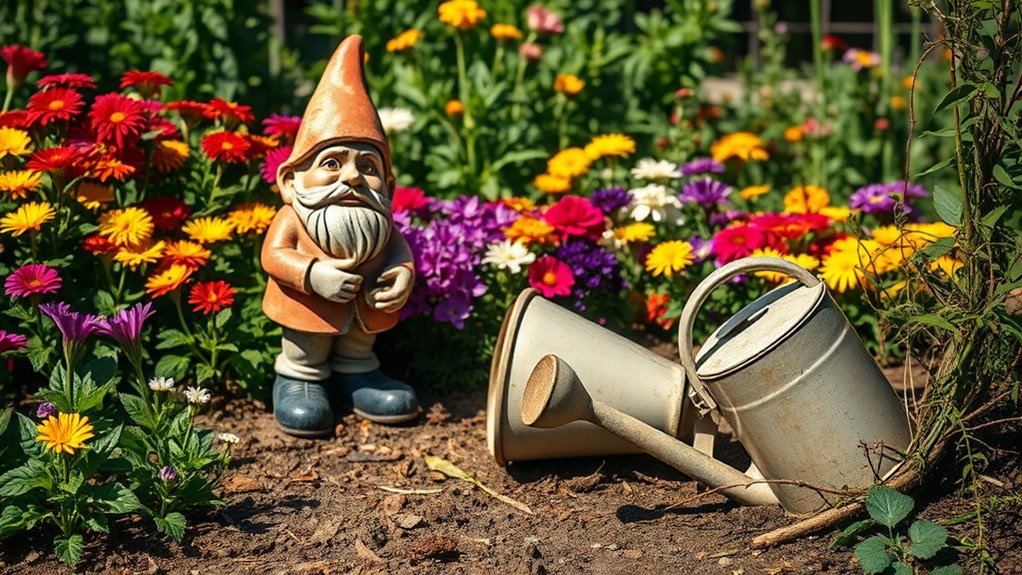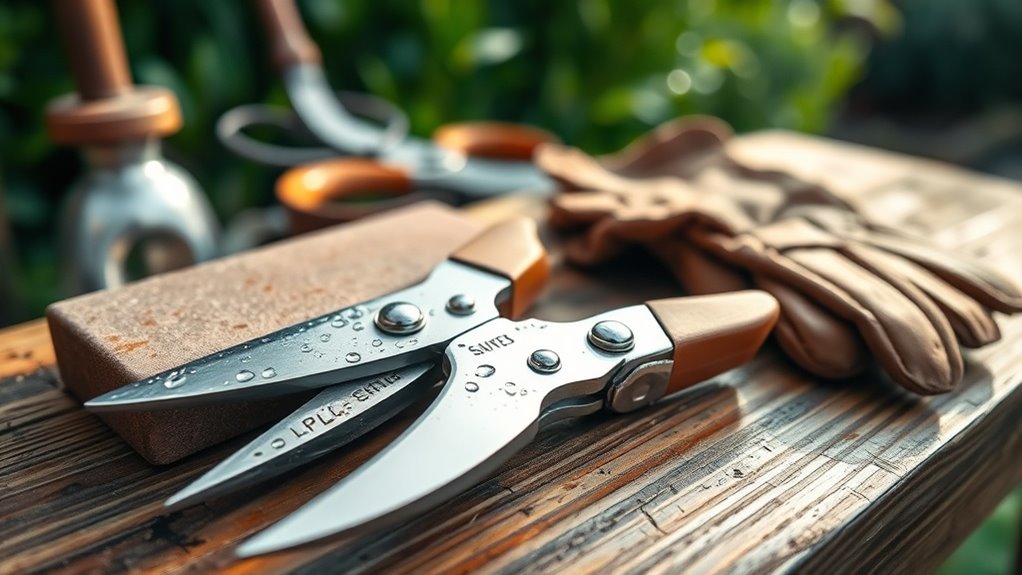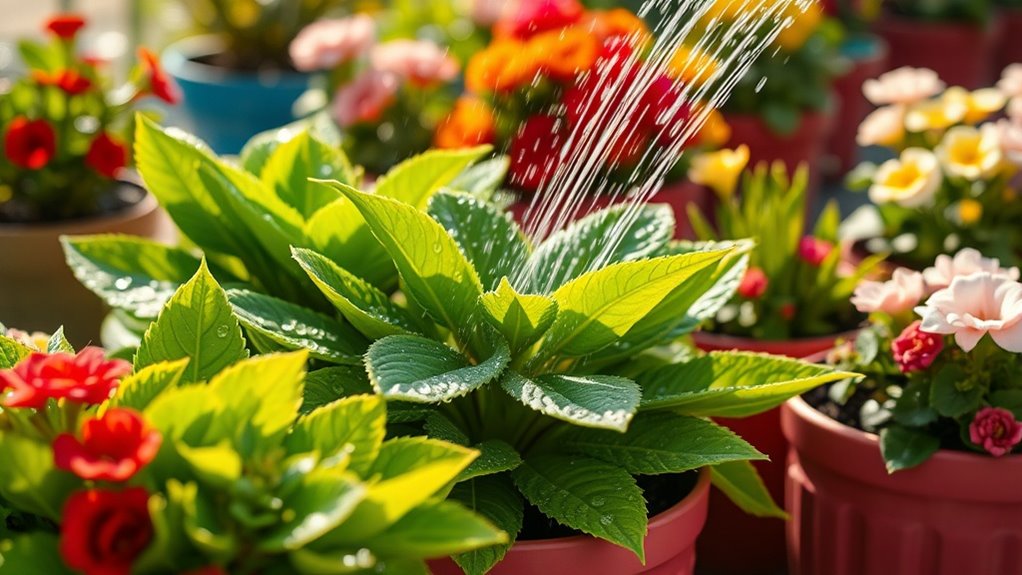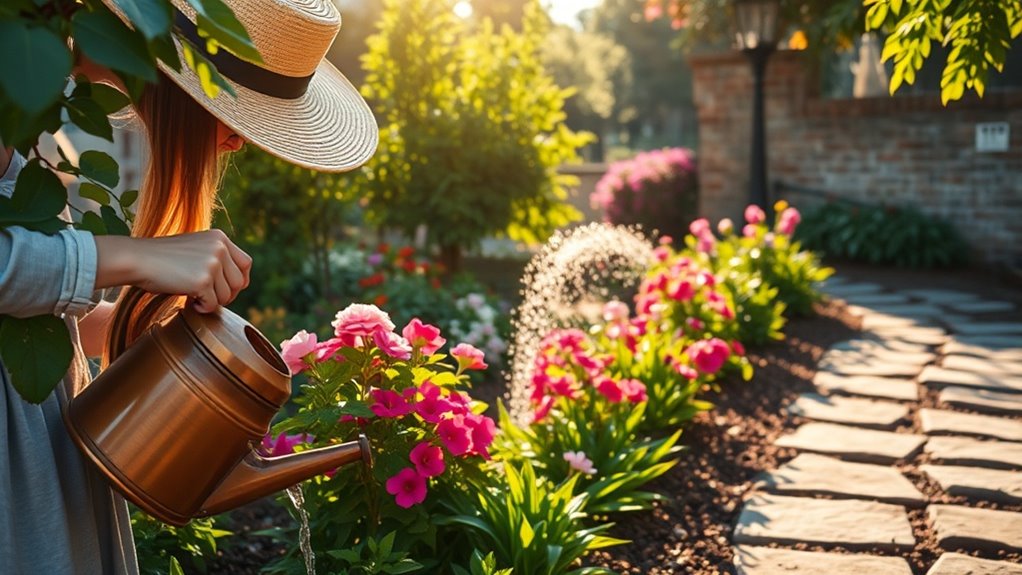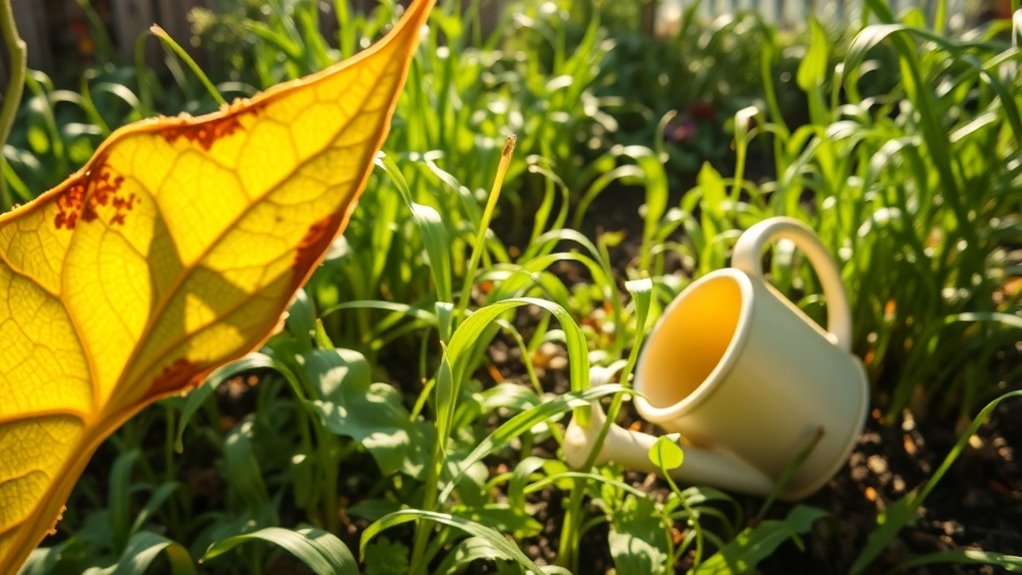5 Outdated Garden Myths You Should Stop Believing
In the world of gardening, some long-held beliefs can be a bit misguided. You might think watering in the morning is the only way to go, but there’s more to the story. Similarly, coffee grounds aren’t the miracle fertilizer many claim them to be. Are you ready to challenge these outdated notions and discover the truth behind common garden practices? Let’s explore these myths and uncover what really works for a thriving garden.
Key Takeaways
- Watering plants only in the morning is not the only option; evening watering can be effective in hot climates if foliage stays dry.
- Relying solely on coffee grounds for fertilizer limits nutrient diversity; combining with compost and balanced fertilizers is essential for plant health.
- Many kitchen scraps, like green onions and lettuce, can be regrown, promoting sustainability and reducing waste.
- Not all weeds are harmful; some enhance soil fertility and attract beneficial insects that support garden health.
- Mulching does not attract pests; instead, it can deter them while retaining moisture and improving plant resilience.
Myth: You Should Only Water Plants in the Morning
Why do so many gardeners believe that watering plants only in the morning is the best practice?
This old garden myth stems from the idea that morning watering helps prevent evaporation and fungal diseases.
While it’s true that watering early reduces water loss, it’s not the only time you can hydrate your plants.
Evening watering can also be effective, especially in hotter climates, as long as you avoid getting foliage wet.
Ultimately, the optimal time to water depends on your specific garden conditions, and understanding your plants’ watering needs can greatly improve their health and growth.
Myth: Coffee Grounds Are the Best Fertilizer
Is it really true that coffee grounds are the best fertilizer for your garden?
While coffee grounds do offer some benefits, like improving soil structure and providing a small amount of nitrogen, they shouldn’t be your go-to fertilizer.
They can also attract pests and may lead to an imbalance in soil pH if used excessively.
Instead, consider diversifying your fertilization strategy with compost, manure, or balanced fertilizers to meet your plants’ specific needs. Additionally, relying solely on coffee grounds can limit the nutrient diversity essential for healthy plant growth.
Myth: You Can’T Grow Plants From Kitchen Scraps
Growing plants from kitchen scraps may seem like a fantasy, but it’s entirely possible with the right approach.
You can regrow green onions, herbs, and even certain vegetables like potatoes and lettuce.
Simply place the scraps in water or soil, ensuring they receive adequate light and moisture.
While some plants thrive better than others, patience is key; not all scraps will produce results immediately.
By utilizing kitchen waste, you’re not only cultivating new plants but also reducing waste. Additionally, many leafy greens can be harvested repeatedly, allowing for a sustainable gardening practice.
Myth: All Weeds Are Bad for the Garden
Have you ever considered that not all weeds are detrimental to your garden?
Some weeds can actually benefit your soil and plants.
For instance, dandelions tap deep into the ground, bringing nutrients closer to the surface.
Others, like clover, fix nitrogen in the soil, improving fertility.
Additionally, certain weeds can attract beneficial insects, which help with pollination and pest control.
In fact, many beneficial weeds can improve soil quality and promote a healthier ecosystem in your garden.
Instead of viewing all weeds as enemies, identify their roles in your ecosystem.
Myth: Mulching Attracts Pests
Many gardeners worry that mulching might invite pests into their garden beds. However, this myth overlooks mulching’s numerous benefits.
A well-chosen mulch can actually deter pests by creating a barrier against them. For instance, organic mulches like cedar or pine contain natural oils that repel insects.
Additionally, mulching retains moisture and regulates soil temperature, promoting healthier plants less susceptible to pest infestations. It also suppresses weed growth, reducing competition for nutrients.
Instead of attracting pests, mulching enhances your garden’s ecosystem. In fact, effective garden practices like mulching can significantly improve plant health and resilience. So, don’t shy away from this valuable practice; embrace mulching to improve your garden’s health and resilience.

